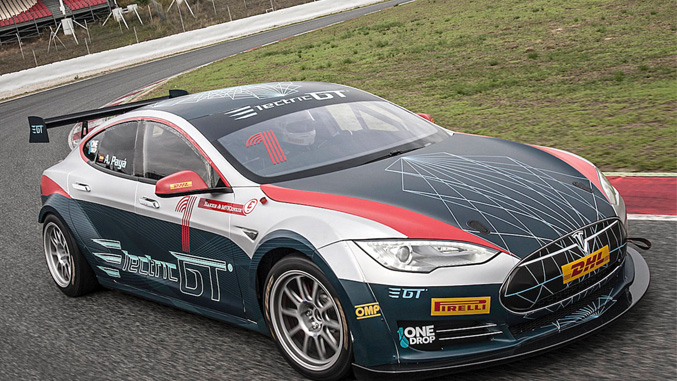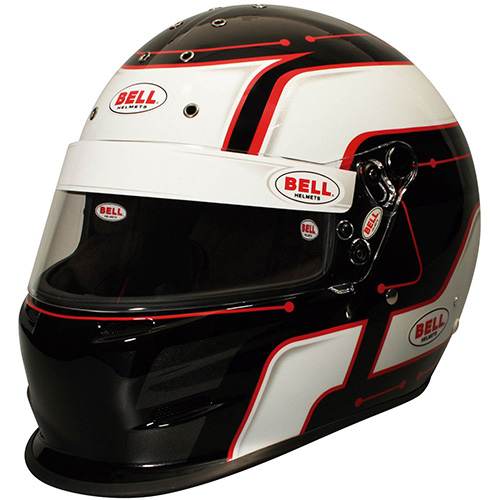Viva La Revolucion: EV Race Cars Are Coming

EV racers are on the way. You may end up driving one. Chances are you hate this idea. But, we want to suggest, don't be so quick to judge.
Now, we're going to get EV race cars whether we like it or not because OEMs finance pro racing and they want pro race cars to support street car sales. The European Union, China and to some degree the U.S. EPA have all written rules than force street cars to become more and more battery-powered. The Jaguar I-Pace and the Porsche Taycan and the Audi e-Tron didn't just drop from a dreamy vision of an awesome future. They came from making the best of regulatory compliance. Which makes EVs a dependable trend, not a whim. As street cars go, so go pro race cars.
Still, beyond a distaste for bureaucratic meddling, racers have many other reasons to suspect that EV race cars are a bad idea:
- The sound: actually, the lack of sound
- Range limitations: charging times, lack of charging facilities or, worst, car swapping mid-race
- Expense: EVs cost a lot of money and batteries cost a lot of money
- Knowledge: I know how to fix an ICE race car, but this thing?
- Development: I know how to build a faster ICE race car, but what are the angles on an EV?
- Skills: the athleticism of shifting and braking is reduced, so the sport isn't as much of a sport
- The sound: you (usually) don't even have gears on an EV, so all that awesome upshifting and downshifting is gone

All of these complaints make sense, to a point. But we like to recall that we had serious doubts about the Tesla Model S when it was first introduced, but actual experience back in 2012 led us to believe Tesla was on to something:
"The Model S is basically a mid-sized luxury sedan with some sporty characteristics allowed by the EV drivetrain. [A] dynamic element that stems from the drivetrain is, in a word, torque. EVs deliver maximum torque at low speeds, and as a result, around town the Model S is a hoot. Which brings us to the second word about the Model S drivetrain: immediacy. As with a car using a clutch-based transmission, the Model S has little to no slop when you dig into the throttle. Improving on that, the Model S has only one gear, so when you punch it, there is almost no delay while you or your microprocessors change gears. This arrangement is better than a manual or an automatic for immediacy, and when coupled with electric low-end torque, it adds up to a car that is simply more responsive in normal driving. [But] it is not an M5 competitor. If you think about it, the body control and drivetrain immediacy that sound sporty are also comfort improvements, because sloppiness is annoying and distracting. So, it may turn out that Tesla has built the ultimate Lexus."
Is it possible that EV race cars could harness some of these EV characteristics and, instead of making a luxury sedan luxurious, they could be harnessed to make a race car more exciting? If you consider what we know about EV dynamics, this seems to be more than just a possibility. We're not saying that EV race car excitement will be the same as in ICE race cars, but it might be a thing.
In addition, there could be some other advantages to EV race cars:
- EV drivetrains seem simpler than ICE drivetrains and so could have lower maintenance (and crash?) costs
- Range limitations don't seem that big if the charging problem at the track can be addressed
- Since an EV race car has to go about 40 miles, or less, in a typical club race, we very roughly calculate that this would only require a 30 kWh battery which should be about half the cost of what sedans needing longer range have
- Is EV energy management the new tire management?
- Maybe the biggie: could the quiet nature of EV race cars allow tracks and racing in places where it was previously impossible because of NIMBYism?
In any event, this is all going to take a long time. Recall that the most popular race car in the U.S. right now dates from a production car built in 1999. The next most popular car is older than that. So, race car generations being measured in decades probably means that, realistically, ICE-based race cars will be around for a very long time. We simply think it is worth considering that EV race cars create an interesting alternative. If that alternative allows expansion of the sport in some ways, then some teams and drivers should focus on pioneering those innovations.


















